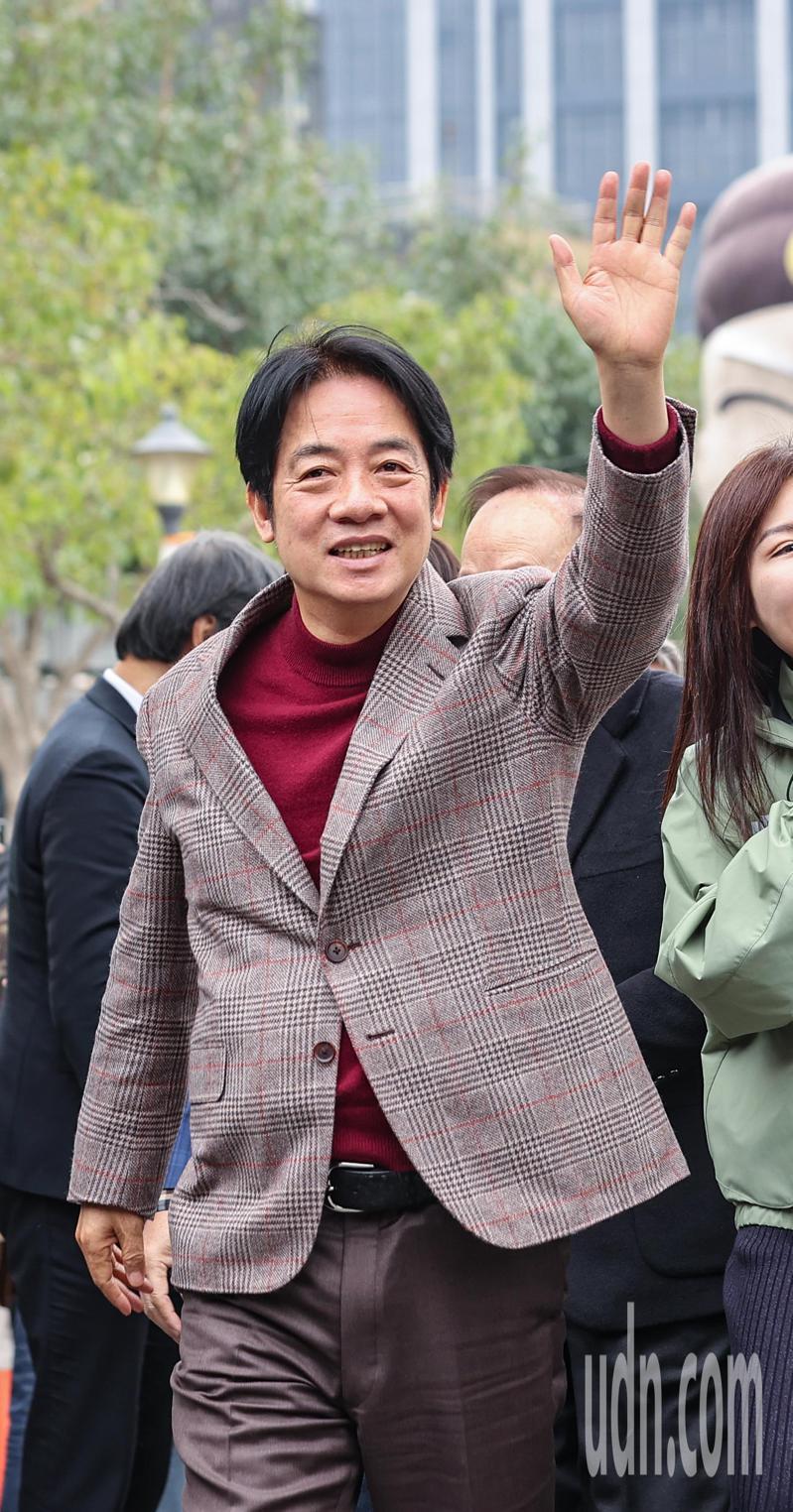2024-02-14 03:00 Economic Daily Economic Daily Editorial President-elect Lai Qingde will begin his first term in May.Reporter Zeng Yuanxin/Photography
At the beginning of the Year of the Dragon, everything is new. President-elect Lai Ching-te is about to start his first term in May. Unlike former President Ma Ying-jeou and current President Tsai Ing-wen, who both had a majority of the votes and a majority in Congress when they took office, Lai Ching-te faced “double minors” when he took office. ”, that is, the vote rate is less than 50%, and the DPP does not have more than half of the seats in the Legislative Yuan. Lai Qingde’s challenge will be higher than that of Ma and Tsai. The industry is more concerned about what economic policies the Lai government will come up with after taking office.
Looking back at the new governments that came to power in recent years, they all have “fighting for the economy” as their primary goal. In addition to the fact that after the twists and turns of the election, the Chinese people always hope that the government will return to focusing on the national economy and people’s livelihood. Secondly, “fighting for the economy” can transcend political party ideology and is easier to achieve. The ruling and opposition parties reached a consensus. After Ma Ying-jeou was elected president, his first cabinet minister was Liu Zhaoxuan, and after President Tsai Ing-wen took office, his first cabinet minister was Lin Quan. Both Liu and Lin had financial backgrounds, and the two presidents appointed them as their first cabinet ministers, with the very purpose of promoting the implementation of financial and economic policies. obvious. When Lai Ching-te takes office as president, the selection of his first cabinet minister may be based on the policy history of the two former presidents.
Compared with the Ma and Tsai administrations, the Lai government may face greater domestic and foreign economic challenges when it first takes office. There are many important countries around the world holding general elections this year, and the most watched one is the U.S. presidential election in the second half of the year. The results will not only affect the development of geopolitics, but may also cause major changes in the global economic and trade landscape. This year’s U.S. presidential election is very likely to involve a battle between current President Biden and former President Trump. Trump has emphasized in many important media interviews in recent days that if he returns to the White House, he will consider raising tariffs on imported goods from mainland China. Even if Trump fails to be elected, given the current high level of protectionism within the United States, Biden may continue his tough stance on mainland China’s economy and trade.
The industry generally expects that the U.S. presidential election will be the biggest gray swan for the global economy this year. If the U.S.-China trade war escalates, the global trade war may also heat up. The collision of the two major economies in the East and the West, including de-China and de-globalization, In the past eight years, it has had a profound impact on global economy and trade. In addition to the haze of the U.S.-China trade war, the economic development of mainland China is another variable in the global economy this year. The mainland stock market fell sharply at the end of the Year of the Rabbit. Although there are initial signs of stopping the decline, the stock market is a leading indicator of the economy. Changes in the mainland capital market have highlighted the doubts of investors at home and abroad about the development path of the mainland’s economy.
In this uneasy economic atmosphere, Taiwan cannot escape the center of the storm, and is even regarded by many overseas think tanks as one of the markets with potential risks this year. In the past eight years, the Tsai administration has prioritized the U.S. line and minimized economic and trade exchanges with the mainland. However, in reality, the mainland is still my country’s most important export market and source of surplus. If the mainland’s economy declines, Taiwan will inevitably be affected. On the other hand, cross-strait relations may become more tense than in the past eight years. Since last year, the mainland has successively tightened its economic and trade concession measures to Taiwan. The early collection of the ECFA list has become the mainland’s first goal of attacking Taiwan. Next, we need to observe the survival of ECFA. .
Both the external and internal economic environment can hardly be called optimistic. This is the main reason why the Lai government must pay special attention to the financial aspect when taking office. Looking back at Chen Shui-bian, Ma Ying-jeou and Tsai Ing-wen, at the beginning of their first term, there were cases of miscalculation of the political and economic situation that caused public dissatisfaction. After President Chen took office, the stock market plummeted due to the abolition of Nuclear Power IV; President Ma’s handling of the oil and electricity price increase caused many sequelae; President Tsai improperly handled the one-case-one-day-off issue when he took office, resulting in labor-management confrontation. These cases all show that financial issues receive the most attention from the Chinese people, but if handled improperly, they will also cause major disruption to the industry.
Although Lai Qingde will not take office for more than three months, the new parliament is about to open its session, and new public opinion expects the new government to make a difference. The Lai government’s relevant policy arrangements will be launched now. Presumptive President Lai Ching-te’s financial and economic advisory circle should recruit talented people and listen to advice from leaders of different industries, so that the new government’s financial and economic policies can be grounded after taking office. We also suggest that the new cabinet should not only implement Lai Ching-te’s “Grand Alliance for Democracy” political views, but also have the characteristics of a “Grand Alliance for Economic Fighting” so that the Lai government can take a solid first step in taking office to fight for the economy and reassure the people of the country.
editorial
Further reading
2024-02-13 19:00:00
#Economic #Daily #EditorialThe #Lai #government #prioritizes #financial #policy


